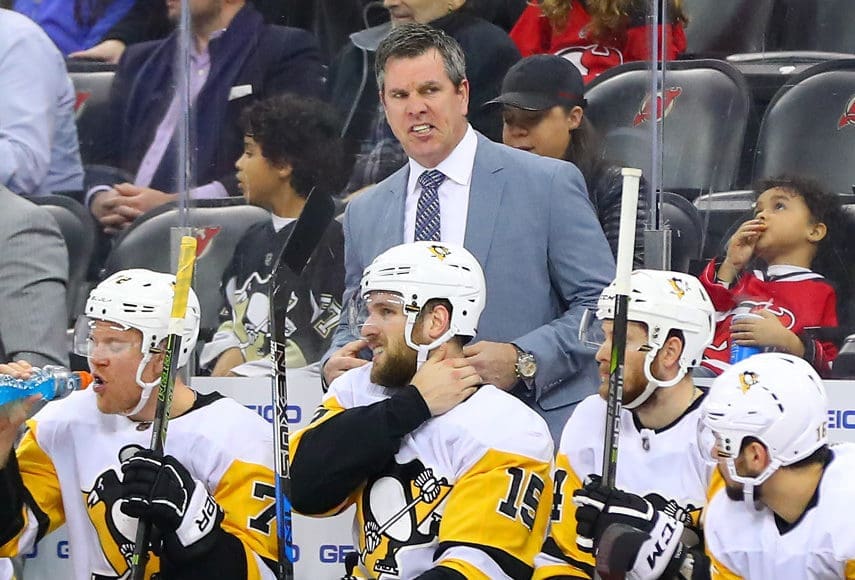Penguins
Sullivan Spanks Penguins Power Play Over Shorthanded Goals

The Pittsburgh Penguins have now allowed 10 shorthanded goals this season. Their latest goof was the game-winner and figurative backbreaker Saturday against the LA Kings. The Penguins man-advantage can be hit and miss. And when it’s not hitting, too often its other teams which do.
The 10 shorthanded goals allowed is the worst in the NHL, one more than both Florida and Boston.
It didn’t take 30 seconds of Mike Sullivan’s postgame media scrum before the coach brought it up. And when he brought it up, he got rolling.
“Our power play allowed a goal against. It can’t happen. It just can’t happen,” Sullivan began as his voice quickened. “We’ve got to have more diligence. We’re not heading the lessons and we’ve got to start.”
Diligence would entail things like preventing turnovers at vulnerable spots like the blue line and getting the puck deep when penalty killers aggressively apply pressure.
“I’m sure teams take notice when you give up goals against. We certainly do (notice),” Sullivan deadpanned. “But it’s not so much what other penalty kills are doing to us, it’s what we’re doing to ourselves.”
“It’s carelessness. It’s a lack of diligence in important parts of the rink. Even though we’re on the power play, we have to have some conscience defensively,” Sullivan said as he added extra emphasis on the word “some”.
Some conscience, as in any conscience. As in just dump the puck off the wall when they’re not a better play to be made; the pretty play isn’t always available, sometimes ugly plays are OK, too.
All-Star Penguins defenseman Kris Letang was the culprit Saturday. Letang served the puck on a silver platter to Jeff Carter for a two-on-one which became a breakaway for Anze Kopitar.
But some conscience was required because Casey DeSmith made the initial save. As the Penguins filed back into the zone, no one actually took a man or the puck. After Kopitar was stopped, he had time to stop, retrieve the loose puck, and get a second crack at DeSmith. DeSmith stopped one great chance, he couldn’t stop two.
Evgeni Malkin and Phil Kessel were back into the defensive zone when Kopitar scored, though attendance is a small part of the final grade.
Then Sullivan took what this column perceived as a slight jab at his power play and their willingness to grind out puck possession.
“You know we might have to put a puck down below the goal line and fight for it,” he said. “Those are decisions that are critically important, especially when you have four forwards on the ice.”
However, benching or rearranging the personnel is admittedly not a serious option for Sullivan. The Penguins power play has two guaranteed Hall of Fame player (Sidney Crosby, Malkin), one All-Star and possible Hall of Famer (Kris Letang), one All-Star (Phil Kessel) and Patric Hornqvist when he is healthy. Or, Jake Guentzel takes the low spot when Hornqvist isn’t healthy.
There isn’t another team in the NHL which can boast that much talent on the power play, including Toronto and Tampa Bay. And while the Penguins power play is prone to go through stretches in which it can seemingly singlehandedly win games, such as going four-for-four in St. Louis last month, the unit can also get too enamored with its potential.
Saturday night, Letang’s giveaway was a prime example. As he felt pressured, he blindly backhanded it towards the midwall. LA forward Jeff Carter was immediately all over it.
“We have to start heeding the lessons. Otherwise, we’re learning the hard way right now,” Sulivan concluded.












